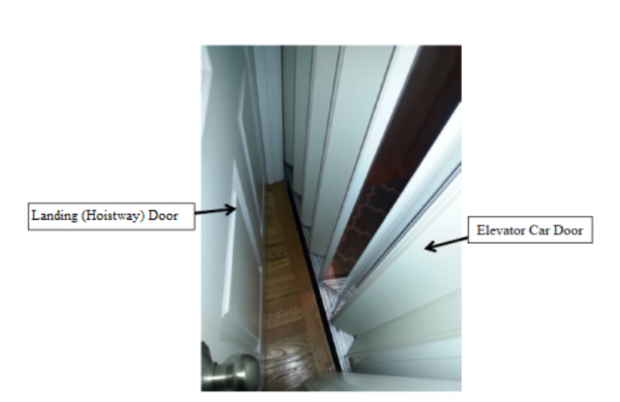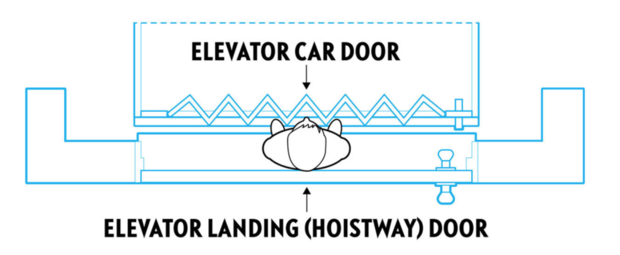[ad_1]
Federal safety regulators have recalled a slew of residential elevators over the years because of potentially deadly risks to children, and September is proving to be a case in point, with three such recalls issued this month alone.
All three recalls involve a problem that is relatively inexpensive to fix with space guards or electronic monitoring devices that deactivate the elevators after a child is detected in a gap between the inner and outer doors, according to the U.S. Consumer Product Safety Commission.
One of the recalls involves some of 15,200 residential elevators made by Custom Elevator, more than a year after a child was crushed to death after being trapped in one of the products, according to the agency and the company.
The 7-year-old died in an elevator at a beach rental home in North Carolina’s Outer Banks in July 2021. Found between the bottom of the elevator car and the home’s upper door frame, the boy’s neck was crushed after he apparently became trapped between the moving elevator’s inner accordion door and outer door. The death prompted the CPSC to urge Airbnb and other vacation rental platforms to take steps to protect young children from certain residential elevators.
The Custom Elevator recall, announced Thursday, is specific to elevators used in people’s homes and made by the Plumsteadville, Pennsylvania, company with either hydraulic drives or winding drum drives. The products were sold to contractors nationwide from 2003 through August 2022 for between $10,000 and $25,000, excluding installation costs.
U.S. Consumer Product Safety Commission
People with the elevators should keep young children away from them and contact the company for free space guards to eliminate any dangerous gaps. Custom Elevator can be reached toll-free at (888) 443-2800 from 8 a.m. to 5 p.m. Eastern time Monday through Friday.
Another recall, also announced Thursday, involves about 1,700 residential elevators made in Canada by Cambridge Elevating and sold nationwide from 1991 through August 2022 for between $12,000 and $60,000, including installation.
Space guards will be provided free of charge by the company, which can be reached at (866) 207-6551 from 8 a.m. to 5 p.m. Eastern time Monday through Friday. No injuries related to the Cambridge products have been reported, according to the recall notice.
Coastal Carolina Elevators in 2015 recalled about 240 residential elevators made by Cambridge Elevating after three reported incidents, including one that resulted in a catastrophic brain injury to a 10-year-old boy from Baltimore, Maryland.
U.S. Consumer Product Safety Commission
Earlier this month, on September 14, the CPSC said it had settled a claim against thyssenkrupp Access Corp., now known as TK Access Solutions, involving three incidents its elevators, including the 2017 death of a 2-year-old and a 2010 case that permanently disabled a 3-year-old.
As part of the settlement, the Grandview, Missouri-based company is recalling about 16,800 residential elevators to inspect them and install space guards, if needed. The recalled products sold for between $15,000 and $25,000 through 2012. Homeowners can call (800) 285-9862 from 9 a.m. to 5 p.m. Eastern Monday through Friday.
The hazard includes elevators made by other companies, with the Washington Post in July 2019 reporting that residential elevators at large had resulted in at least eight children dying and two seriously hurt since 1981.
After decades of lawsuits, the nation’s elevator safety code shrank the door gap in 2017, but the new rules only impacted new installations, leaving hundreds of thousands of existing elevators posing a deadly hazard for small bodies.
According to the CPSC, residential elevators are commonly found in multi-level homes, townhomes, vacation homes and rentals, as well as in large homes that were converted to inns or bed-and-breakfast hotels. But the elevators have proved heart-wrenching for some vacationing families.
Safety advocates have for years warned about catastrophes involving children and home elevators, including the parents of then-10-year-old Jordan Nelson, paralyzed in 2013 in an elevator accident at a beach house rented by his family in South Carolina. “He has these huge dimples, this bright smile and he just knew how to work it,” his mother told CBS News in 2014.
[ad_2]
Source link


